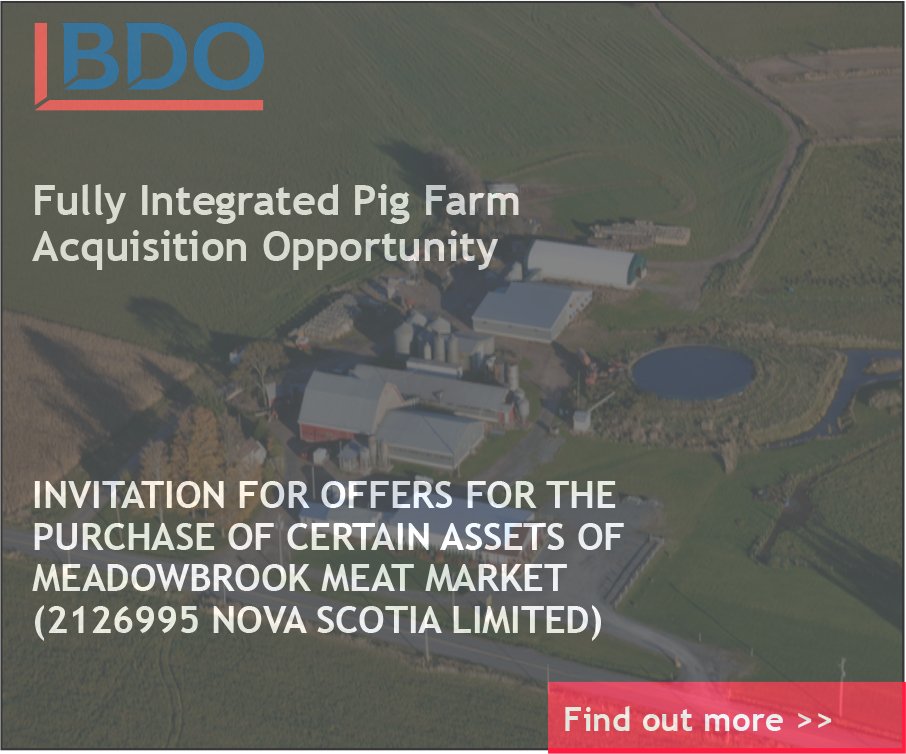Feds pour big bucks into new N.S. research winery
/Lawrence MacAulay was in Nova Scotia’s Annapolis Valley on Feb. 28, which turned out to be his last day as the federal agriculture minister before being shuffled into Veterans Affairs. MacAulay joined wine industry professionals, grape producers, and research scientists for the grand opening of the Kentville Research and Development Centre’s new research winery facility. Pictured, from left, are Dr. Deb Moreau, Dr. Harrison Wright, Dr. Girard Benoit, Alex MacDonald, MacAulay, Bruce Wright, Dr. Mark Hodges, Dr. Shawna MacKinnon, and Dr. Charles Forney. (Emily Leeson photo)
by Emily Leeson
“These are exciting times for the wine industry here in Nova Scotia,” said Lawrence MacAulay on Feb. 28. He was in Nova Scotia on what turned out to be his last day as the federal agriculture minister. The next day, Prime Minister Justin Trudeau moved him to Veterans Affairs.
MacAulay was in the Annapolis Valley for the grand opening of the Kentville Research and Development Centre’s new research winery facility. Those gathered for the ribbon-cutting included wine industry professionals, grape producers, and research scientists. The plan for the new facility is to join together these industry stakeholders in furthering Nova Scotia’s burgeoning wine business.
In 2018, the province’s 23 licensed wineries produced 1.5 million litres of wine valued at more than $23 million. The industry now employs more than 700 people and MacAulay called that an amazing contribution.
“You have to have the investment in research,” he said. “All of this helps the bottom line for the farmers.”
MacAulay said the facility’s researchers will not only be looking at ways to make the best wine but also in the most efficient ways possible.
Backed by $1.8 million in federal funding, MacAulay said he sees the winery as an important investment in an industry poised to have a far reach. “The overall goal of this investment is to help the sector reach new heights in quality and taste, to expand markets, and support jobs and growth in communities right across Nova Scotia,” he said.
The 360-square-metre facility, appropriately decorated with purple – or grape – accents is more importantly packed with cutting-edge equipment and specialized rooms, including a significant wine cellar.
In his remarks to the crowd, Alex MacDonald, the Winery Association of Nova Scotia’s assistant executive director, noted the pristine state of the new lab space – right down to the brand-new lab coats sported by the researchers.
“When I first got here, I was actually concerned that the research scientists weren’t actually doing any work – their coats are too clean,” MacDonald joked. “But I think that they have these on in a celebratory fashion in preparation of the great work they are going to do in this brand-new facility.”
While the research team may have been in their Sunday best, they are already well engaged. The team has an ongoing research program in the works to map the grape varieties, growing techniques, and conditions at every operating vineyard in the province. As of 2018, that encompassed 1,200 acres of vineyards.
The researchers plan to study wine-making techniques and evaluate the impact of fermentation and temperature on the quality of the wine produced. That work will include the identification and use of natural yeasts found in Nova Scotia that could contribute to unique characteristics in the province’s wine profiles.
The research winery will also offer more opportunities for scientists and industry specialists to collaborate.
Dr. Benoit Girard, a regional director general with Agriculture and Agri-Food Canada based in Kentville, mentioned the importance of that work in his remarks. “The research winery really gives us the capability to do the research with the end product in mind,” he said. “What we do in the vineyards, what grape varieties we have, how the wine is made – we’ll be able to measure these things in terms of the wine, and these measurements and this information will be shared with the industry and help our winemakers.”
Also in attendance was Bruce Wright, president of the Grape Growers Association of Nova Scotia.
“The industry is now growing and maturing with research rather than with just people growing grapes in the ground,” said Wright. “We really feel that that is excellent.”
For his part, MacDonald said he sees the facility as another step toward expanding the already thriving market for Nova Scotia flavours.
“Right now, my colleagues are marketing Nova Scotia wine at the Vancouver International Wine Fair and later this spring we’re taking Nova Scotia flavours to New York, Düsseldorf, and London,” said MacDonald. “We’re really taking our brand, our soil, and our sunshine and those wonderful flavours all around the world.”











